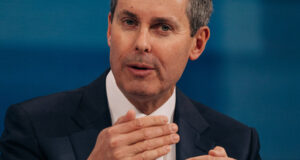
Bryan Cutsinger has been doing an excellent job of presenting economic problems to solve.
Sometimes, to do basic economics, you need to know basic math.
Here’s a statement from research scientist Carey King in “Why Energy Efficiency Might Not Cut Emissions As Much as You Think,” Wall Street Journal, November 11, 2024 (print edition):
The idea that more efficiency can spur more consumption rather than less is known as the Jevons Paradox. Named after the British economist William Stanley Jevons, who first described it in his 1865 book “The Coal Question,” the paradox challenges the intuitive belief that efficiency gains automatically lead to energy savings.
Critics who dismiss Jevons’s idea often focus on consumer behavior. For example, it is hard to imagine that a driver would drive 50% more miles if purchasing a car that uses 50% less fuel per mile. They might drive a little more, but it wouldn’t be enough to make a difference.
Implicit in King’s statement, given the context, is the idea that if mileage were to rise by 50%, fuel consumption would not change. Is that true?
Show your work.
Note: King, the Journal tells us, is a research scientist and assistant director at the Energy Institute at the University of Texas at Austin.




